113th-year senior secondary school tech-assisted learning program ends with success.
The Ministry of Education’s “Digital Learning Enhancement Program for Primary and Secondary Schools” has been promoted for three years and is one of Taiwan’s key initiatives for transforming digital education. Tablet computers have become a new tool in classrooms, empowering students with enhanced autonomous learning. Meanwhile, the Ministry is also focusing on developing AI-powered (including generative AI) self-learning courses in senior secondary schools to keep pace with the rapid advancement of artificial intelligence.
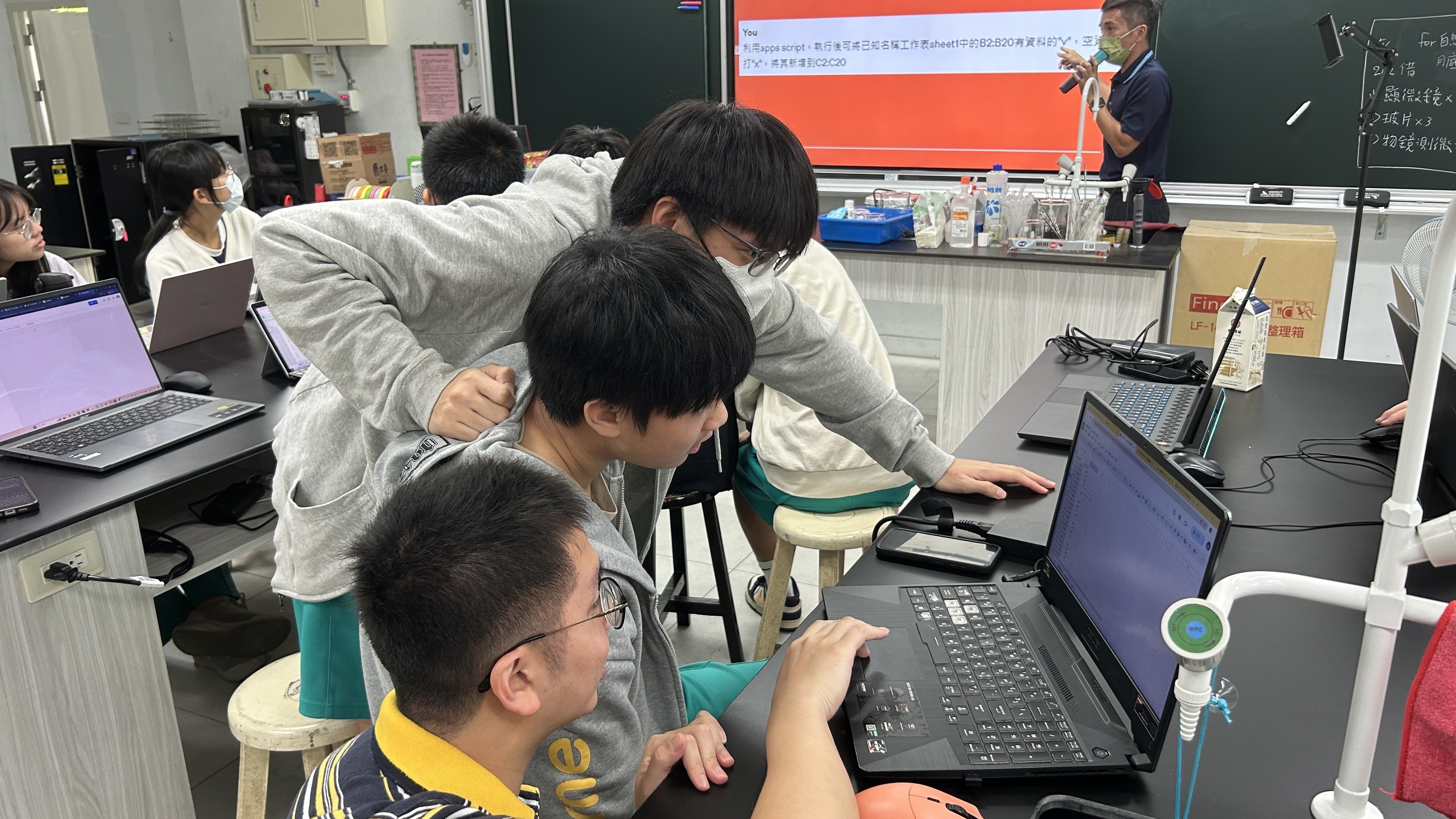
Students collaborate within groups to solve tasks together.
Professor Gwo-Jen Hwang, Chair Professor at Taiwan Tech, was entrusted by the Ministry of Education to train 81 senior secondary schools in Taiwan to develop curriculum and teaching activities that integrate mobile technology, autonomous learning, and artificial intelligence (AI). The program aims to cultivate students’ problem-solving, critical thinking, self-learning, and AI literacy skills. This year, these schools developed over 196 AI-assisted autonomous learning activity lesson plans, benefiting 8,112 teachers and 611,969 students. The program culminated in a results exhibition on December 12, 2024, at Taichung’s Guanghua Vocational High School, showcasing the integration of AI technology, tablet computers, and self-learning activity designs. The event demonstrated significant improvements in teaching quality and student learning outcomes, with notable results for both teachers and students.
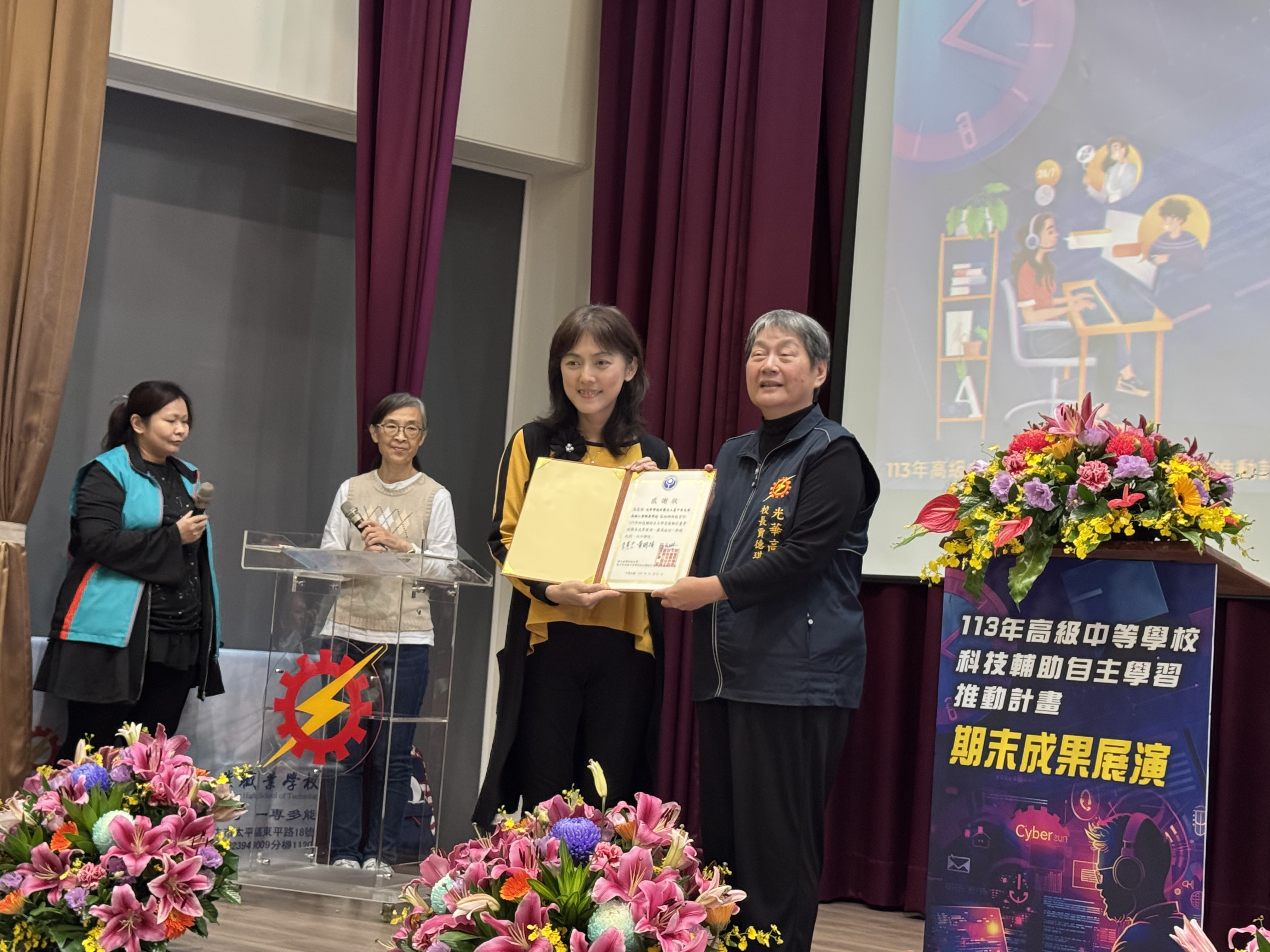
The program’s co-host, Professor Hui-Chun Chu from Soochow University (left), presents a certificate of appreciation to Principal De-Qi Jia of Guanghua Vocational High School (right).
Principal De-Qi Jia of Guanghua Vocational High School in Taichung shared that the introduction of tablet-based teaching has brought five key innovations to the school: individualized learning guidance, real-time feedback and interaction, engaging learning experiences, sustainable development with ubiquitous learning modes, and a collaborative communication learning environment. In the “AI Exploration” course, Teacher Xian-Min Ye used tablets to guide students in a project on image recognition applications. Meanwhile, English teacher Yu-Xue Hsu leveraged tablets and digital tools like ChatGPT to facilitate interactive language learning. These two teaching examples exemplify the educational goal of fostering students’ problem-solving abilities and promoting autonomous learning.
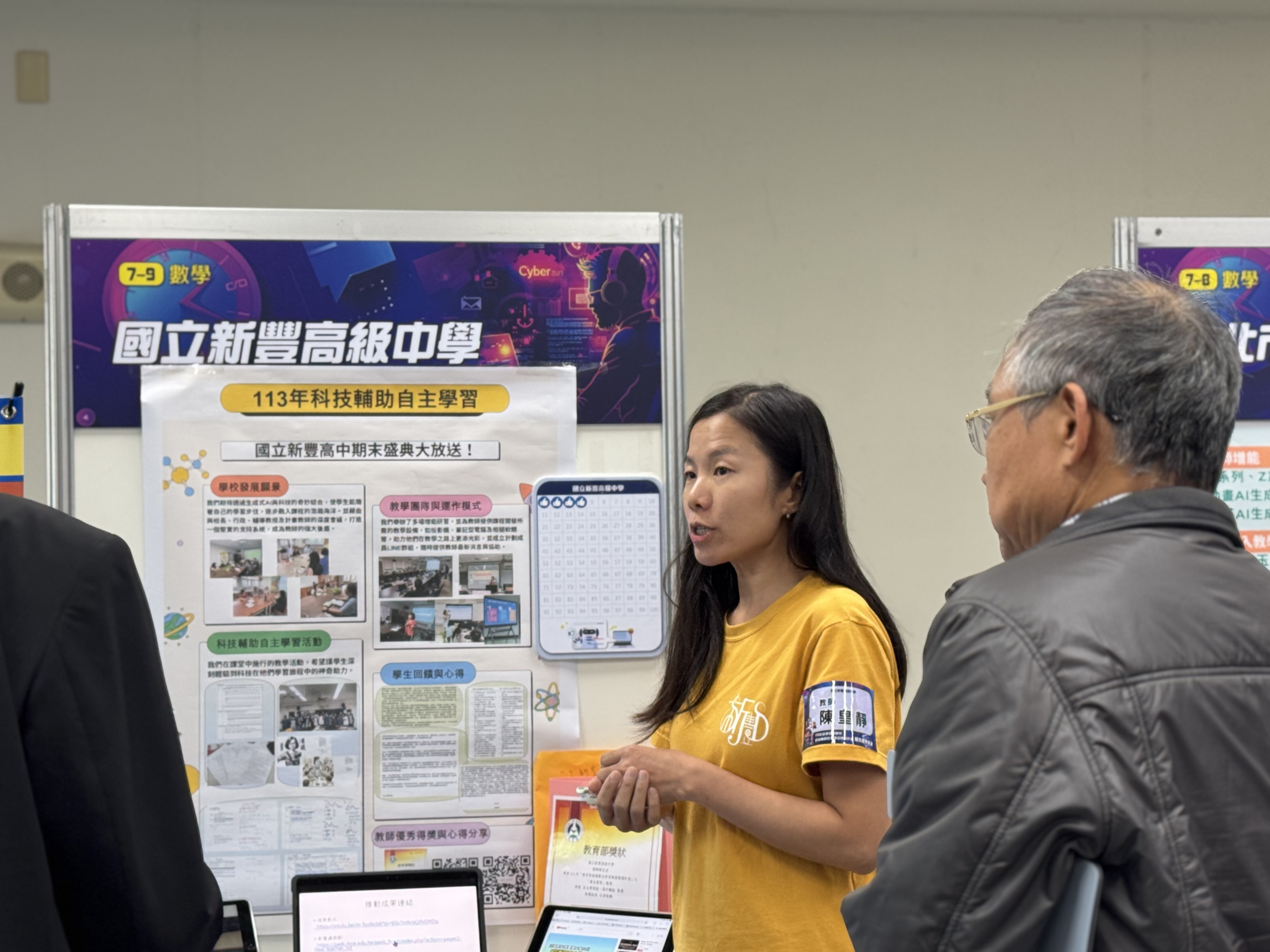
National Xinfeng Senior High School showcased the application of technology-assisted autonomous learning in mathematics instruction.
At Tainan’s National Xinfeng Senior High School, Teacher Fong-Yan Zhang applied the Four Learning Strategies to economics courses, guiding students to independently explore issues in Taiwan’s tourism market. The teacher used the “Individualized Learning” platform to assign relevant videos and questions, encouraging students to self-learn and think critically about the challenges facing Taiwan’s tourism industry. The issues identified by students were then brought into group discussions, where they collaboratively brainstormed solutions. In addition to group discussions, students also used the “Individualized Learning” platform’s generative AI, eBrain, to brainstorm tourism plans that maintain market balance and meet consumer demand.
National Xinfeng High School’s courses have been consistently recognized in Ministry of Education competitions for their teaching quality. Students reported that the use of discussions, artificial intelligence, and tablets for real-time research and problem-solving helped them better evaluate their project plans, compare them with other groups, and foster diverse thinking.
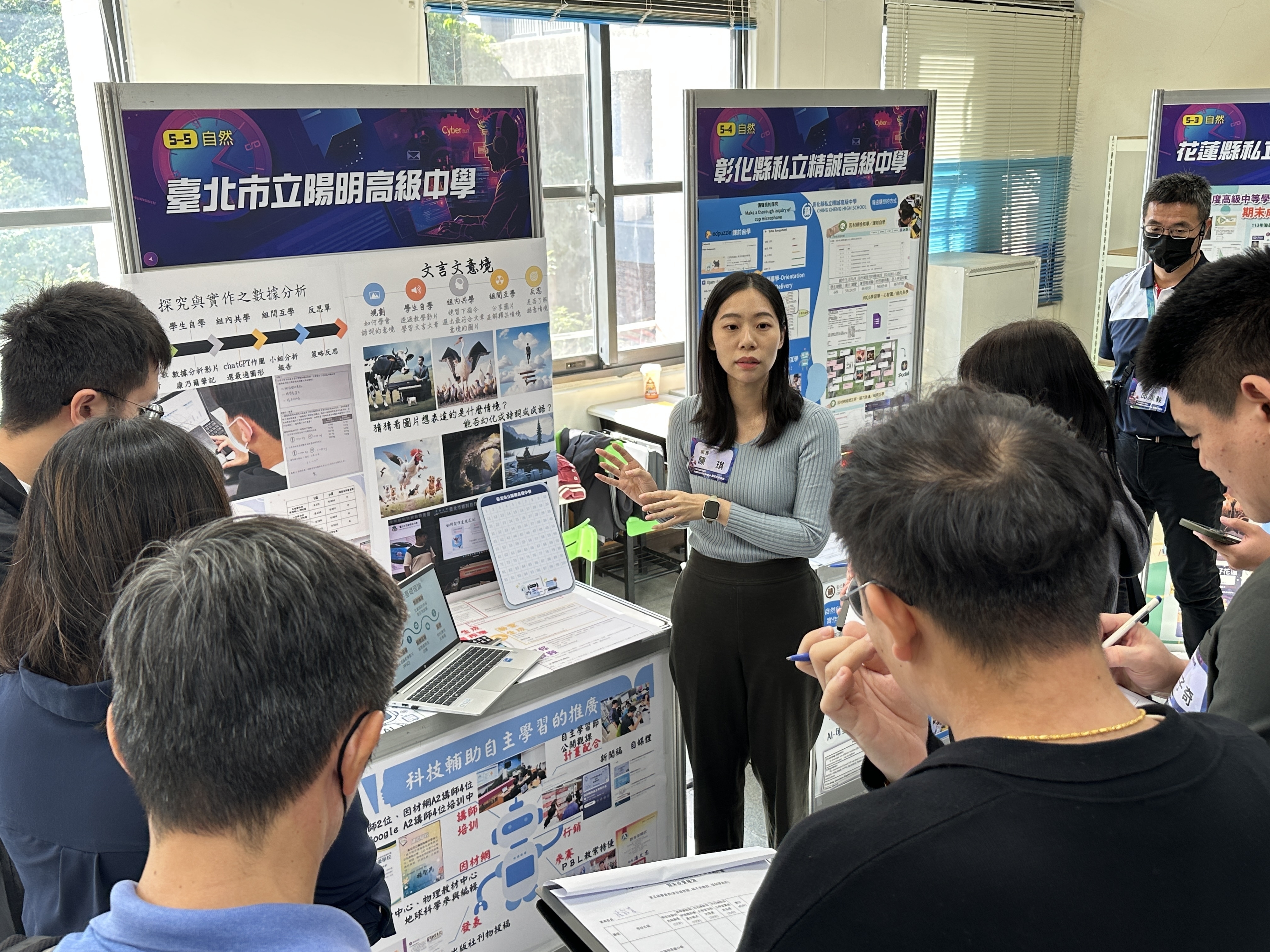
Taipei Municipal Yangming High School presented the results of their technology-assisted autonomous learning programs.
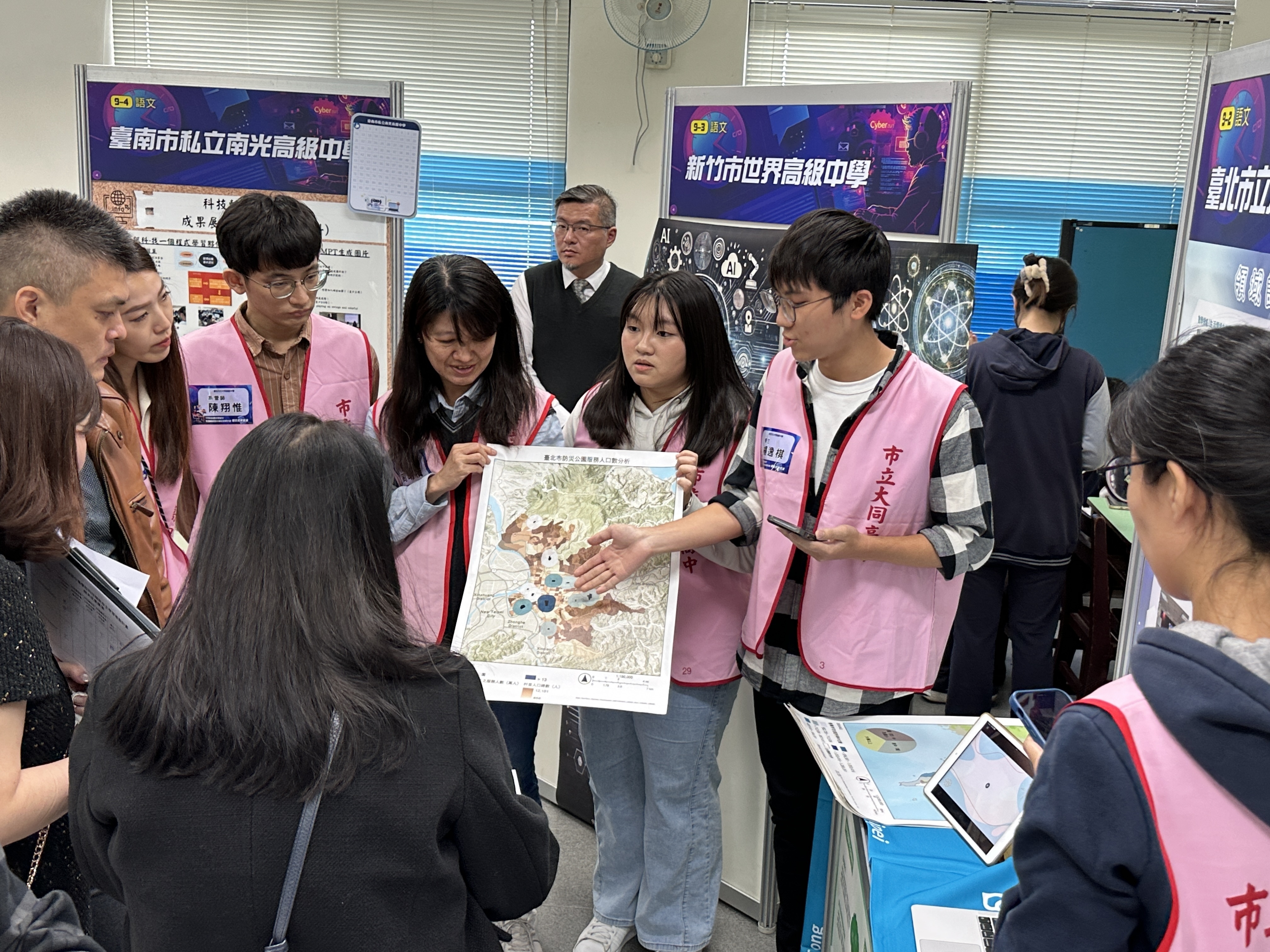
Taipei Municipal Datong Senior High School showcased the results of their technology-assisted autonomous learning program.
Additionally, dozens of experts and scholars from across Taiwan were invited to provide on-site professional teaching consultation and support for teachers. For example, under the encouragement of Professor Hui-Chun Chu, a guiding professor at Taipei Municipal Yangming High School, the school designed a cyclical module for autonomous learning, helping students improve both their learning attitudes and cognitive abilities. Teacher Fang-Bin Shi from Taipei Municipal Yangming High School mentioned that the technology-assisted autonomous learning cycle module, combined with AI tools, is highly suitable for flexible high school courses.
Students at the school shared their experiences, saying:
- “In this project-based experiment, we learned to search for information using tablets and discuss solutions with our team. This enhanced our logical thinking and strengthened our group relationships.”
- “Autonomous learning allowed us to develop in areas we were interested in. This project helped improve our logical thinking and reading skills in science.”
- “In this course, I learned time management, problem-solving, and communication skills. It taught me how to maintain correct expectations, stay positive, and be curious about learning. I also learned to utilize various resources to help with my studies, collect and evaluate information when facing difficulties, and apply systematic thinking to solve challenges.”
Program leader, Professor Gwo-Jen Hwang, emphasized that leveraging AI for technology-assisted autonomous learning can enhance student motivation and learning outcomes through diverse learning models and technological applications. He encouraged teachers to actively present their results, share innovative teaching models, and spread successful experiences to more educational partners. Such community exchanges are likely to foster cross-school and cross-disciplinary teaching collaborations, helping students connect knowledge from different subjects, solve interdisciplinary problems, and inspire teachers from various fields with a passion for education.